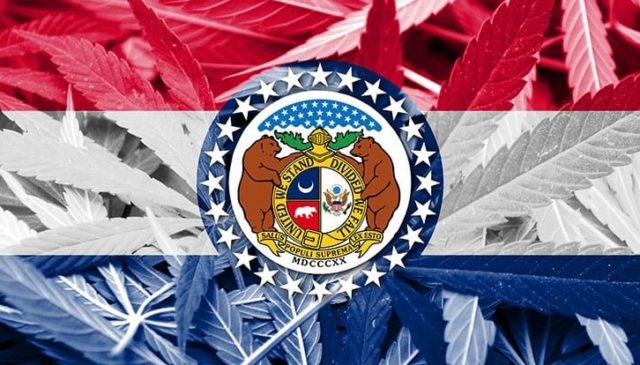
Missouri did not launch medical cannabis sales until Oct. 16, 2020, but a report released earlier this month revealed the extent to which licensed patients were lined up for access.
The Missouri Department of Health and Senior Services (DHSS) issued 56,448 new patient licenses and 12,062 renewed patient licenses between Dec. 6, 2019, and Dec. 5, 2020, according to the department’s second annual report of the Missouri Medical Marijuana Regulatory Program.
The DHSS approved 23,000-plus patients and caregivers in program year 2019—before commercial sales began—with roughly 33% also approved to home cultivate. That year, Missouri home cultivators were comprised of 7,276 patients and 298 caregivers.
But with the state’s first medical cannabis sales launching this past October, the number of approved patients grew by roughly 200% during 2020. In addition, approved caregivers grew from 563 to 2,146, and home cultivators grew from 7,574 to 19,831.
DHSS is required by law to annually submit a report to the governor regarding the efficient discharge of its responsibilities.
“It is an honor to be a part of the great success of this new medical industry in Missouri,” Lyndall Fraker, director of the section of medical cannabis within the DHSS, said in a news release Aug. 19, when the second annual report was published.
“I continue to be amazed at how hard our team is working in order to help our facilities provide this alternative medicine for the state’s fast growing patient base,” he said. “Our goal is to provide a safe, well-regulated and patient-focused program second to none in our great nation. Our success undeniably proves we have accomplished this goal in a timely manner, meeting all of our constitutional obligations as decided by the citizens of the great state of Missouri.”
Sixty-five percent of Missouri voters passed Amendment 2 to legalize medical cannabis during the November 2018 election. A month later, it was added to the Missouri Constitution, granting the DHSS the authority and responsibility to create a well-regulated program to ensure the availability of, and safe access to, medical cannabis.
Including Missouri, 21 states implemented medical cannabis laws since 2005, according to DHSS. While the national average for implementation is 29 months, Missouri implemented its program in just over 23 months. Only five states implemented programs faster: Pennsylvania (22), New York (18), Utah (16), Minnesota (13) and Oklahoma (4), according to DHSS.
The quickest state in the nation to implement an effective medical cannabis program, Oklahoma had roughly 376,000 registered patients as of earlier this month. Voters there approved State Question 788 to legalized medical cannabis on June 26, 2018.
Missouri, by comparison, had 69,387 registered patients as of December 2020. Among those patients, the most common qualifying medical condition listed was a physical or psychological dependence on another drug, with 20,988 individuals checking that box.
Meanwhile, 17,492 patients with non-defined chronic medical conditions were the second most common. Psychiatric disorders accounted for 11,914 patients. Migraines accounted for 3,843 patients. And those suffering from terminal illnesses, such as cancer, represented 2,304 of the qualifying patients.
Those aged 30 to 39 years represented 24.7% of the patients, while 40 to 49 years (20.2%), 50 to 59 years (18%), 60 to 69 years (16.9%), 18 to 29 years (15.1%) and those 70 years and older (4.7%) followed suit. Those 17 and under accounted for 0.3% of patients.
Beginning in December 2019, DHSS issued licenses to all types of medical cannabis facilities after reviewing more than 2,000 applications. As of December 2020, 192 dispensary licenses were issued, as well as licenses for 86 manufacturing and 60 cultivation facilities. However, as of December 2020, only 17 dispensaries, one manufacturer and 10 cultivation facilities had completed a DHSS Commencement Inspection and been given the final approval to operate.
The 192 dispensary licenses allowed in Missouri represent approximately 3.1 dispensaries per 100,000 population in the state, which is third only to Oklahoma (51.8 dispensaries per 100,000) and New Mexico (5.2 dispensaries per 100,000) among the 21 states that have implemented programs since 2005, according to DHSS data compiled from August 2020. Both Oklahoma, which was up to 2,325 dispensaries as of earlier this month, and New Mexico have unlimited licensing systems.
In the current and upcoming program years, DHSS will continue to monitor facilities’ progress and ability to meet the needs of patients, according to the news release.
“We will continue to pursue public engagement and transparency, which has always been a key component of this program’s success, and further develop consistent regulation, enforcement and education in order to ensure it is successful in providing safe and secure access to medical marijuana for qualifying Missouri patients,” Fraker said.
